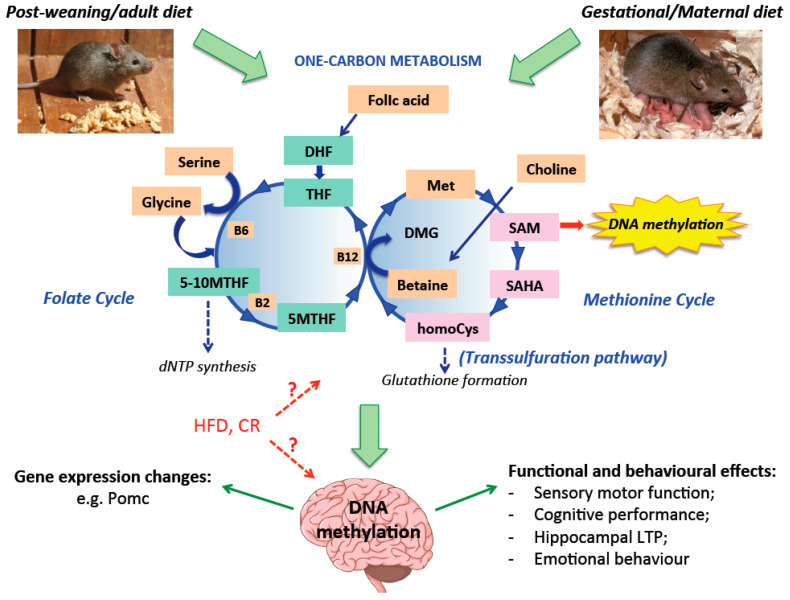Figure 1.
Nutrition affects one-carbon metabolism and DNA methylation. Gestational/maternal diet before weaning influences DNA methylation in the brain of the offspring. In addition, life-long nutrition and the metabolic status impact on brain DNA methylation. Micronutrients from the food could impinge on one-carbon metabolism: molecules introduced in our body with the diet are reported in orange squares; vitamins are also reported. Those molecules enter in the folate cycle (left) or the methionine cycle (right), possibly changing the availability of SAM, the universal methyl group donor used by the SAM-dependent methyltransferase enzyme for DNA (or other substrates) methylation reactions. Modification in the pattern of DNA methylation in specific genomic loci in the brain could consequently modulate gene expression and behavioral outcome. Acronym: met = methionine; SAM = S-adenosylmethionine; SAHA = S-adenosylhomocysteine; homoCys = homocysteine; DMG = dimethylglycine; DHF = dihydrofolic acid; THF = tetrahydrofolic acid; 5MTHF = 5-methyl-tetrahydrofolate; 5-10MTHF = 5-10 methylenetetrahydrofolate; B12 = vitamin B12, precursor to methionine synthase, involved in the production of met from homoCys and betaine; B6 = vitamin B6, cofactor in the conversion of THF to 5-10MTHF; B2 = vitamin B2 involved in the conversion of 5-10MTHF to 5MTHF; HFD = high fat diet; CR = caloric restriction; LTP = long term potentiation. Color coding: green squares = compound belonging to the folate cycle; pink squares = compound belonging to the methionine cycle; orange squares = micronutrient derived from the diet. Blue dashed arrows = omitted intermediate reactions; red dashed arrows = involvement not demonstrated yet.

